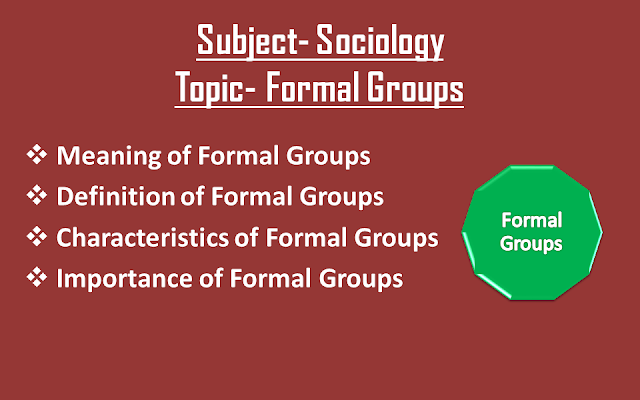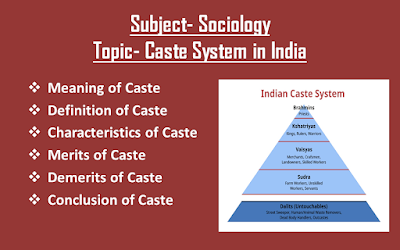Formal Groups- Meaning, Definition, Characteristics and Importance
# Formal Groups
Formal group is a group that has well defined rules and regulation for joining the group, staying in the group and leaving the group. Those who fulfill these rules and regulation can join and engage in the activities of the group. The membership can be canceled if a member violates these rules.
A formal group is a type of social group that is characterized by a structured and organized framework, with clear boundaries, roles, and responsibilities. Formal groups are often established for a specific purpose, such as a workplace team, a social club, or a community organization.
For example, organization, banks, hospitals, educational institutions, official association and so on are the instances of formal groups.
# Definition of Formal Groups
1. According to Max Weber:- "A group that is characterized by a rational and impersonal organization, with a clear hierarchy and division of labor."
2. According to Emile Durkheim:- "A group that is formed and maintained through formal social structures, such as laws, rules, and institutions."
3. According to George Herbert Mead:- "A group that is consciously formed and organized to achieve a specific purpose, with defined roles and relationships among members."
4. According to Talcott Parsons:- "A group that is deliberately created and maintained to achieve a specific goal, with a clear structure, norms, and roles."
5. According to Richard T. LaPiere:- "A group that is formally organized, with a clear purpose, rules, and sanctions."
# Characteristics of Formal Group
1. Defined Purpose:- Formal groups have a clear purpose or goal that is agreed upon by members.
2. Structured Organization:- Formal groups have a hierarchical structure, with clear roles and responsibilities.
3. Leadership:- Formal groups have designated leaders or authority figures who make decisions and guide the group.
4. Rules and Procedures:- Formal groups have established rules and procedures that govern member behavior.
5. Membership Requirements:- Formal groups have clear criteria for membership, such as application, screening, or invitation.
6. Communication Channels:- Formal groups have established communication channels, such as meetings, reports, or newsletters.
7. Accountability:- Formal groups have mechanisms for holding members accountable for their actions and performance.
8. Resources:- Formal groups often have access to resources, such as funding, equipment, or facilities.
9. Record-Keeping:- Formal groups maintain records of activities, decisions, and member information.
10. Evaluation:- Formal groups regularly evaluate their progress, goals, and effectiveness.
# Importance of Formal Groups
1. Formal groups provide a framework for achieving shared goals and objectives.
2. Formal groups promote efficiency, productivity, and accountability.
3. Formal groups facilitate communication, coordination, and decision-making.
4. Formal groups establish clear roles, responsibilities, and expectations.
5. Formal groups support specialization, expertise, and division of labor.
6. Formal groups foster a sense of professionalism, discipline, and commitment.
7. Formal groups provide a platform for leadership development and mentorship.
8. Formal groups enable scalability, growth, and expansion.
9. Formal groups promote stability, continuity, and institutional memory.
10. Formal groups contribute to social order, structure, and organization.
Watch video on YouTube





